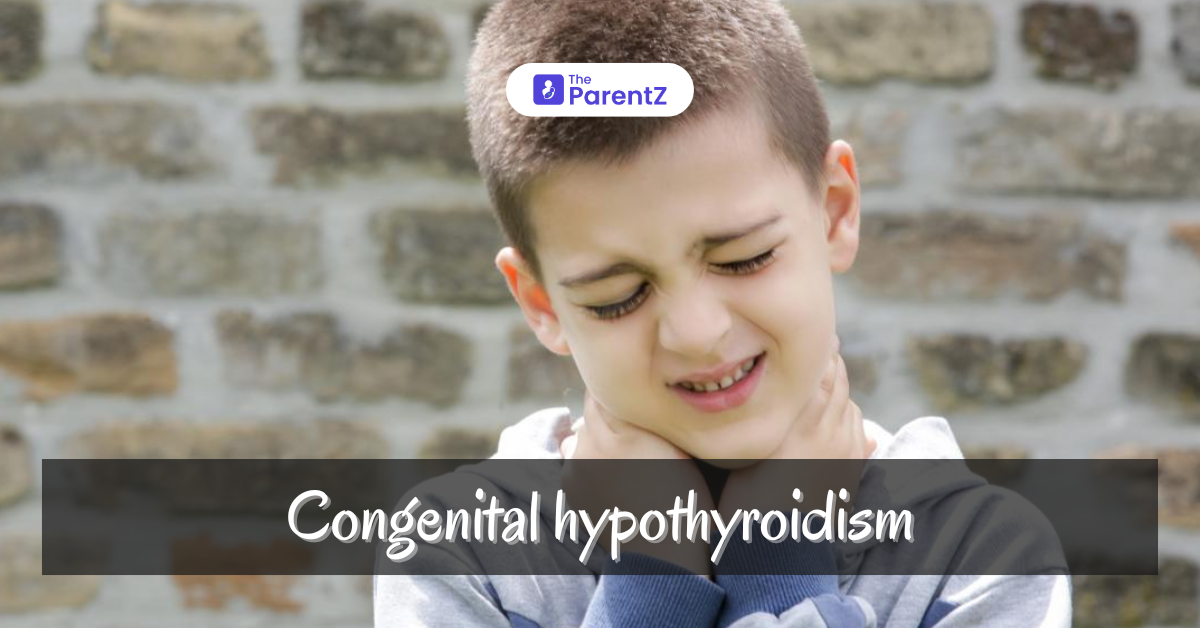What is congenital hypothyroidism
The thyroid is a small gland in the human body which is situated in the front of the neck. Though extremely small, the hormones released by the thyroid play an important role in maintaining normal metabolism of the body.
Hypothyroidism or under-active thyroid means that there are low levels of thyroid hormone in the body. In this case the body uses energy slowly, does not produce enough heat and the metabolic activities of the cells in the body slow down.
Usually hypothyroidism is diagnosed in older individuals but sometimes hypothyroidism can be present in babies as well. When a baby is born with an under-active thyroid or low levels of thyroid hormone in the body, it is known as congenital hypothyroidism.
What are the signs and symptoms of congenital hypothyroidism?
- You may notice that the baby has jaundice or yellowing of skin.
- The baby appears extremely weak or has a floppy muscle tone.
- The baby sleeps for extremely long durations which is more than the normal amount.
- There is a small soft spot in the head of all babies which is known as the anterior fontanelle. It normally closes in a few days after birth but in babies with congenital hypothyroidism it may not close and appear like a soft spot which can be pressed with the finger.
- The child may show retarded physical growth or poor growth.
- There may be swelling around the eyes of the baby.
- You may notice that the baby has a large and swollen tongue.
- The skin of the baby would be abnormally cool to touch.
- You may notice that the child has a large belly with a producing navel.
What causes congenital hypothyroidism?
Congenital hypothyroidism means that there is not enough thyroid hormone in the body. It can be because the thyroid gland is not form properly during the pregnancy and the baby is born without a thyroid gland or with a small under developed thyroid gland.
This is the most common cause for congenital hypothyroidism. In other cases, the thyroid gland may be properly formed but it cannot produce the thyroid hormone due to some insufficiency. This is usually linked to some genetic condition and chances are that it is passed in the family.
Does congenital hypothyroidism resolve?
No, true congenital hypothyroidism does not resolve on it’s own and the baby will need treatment. In some cases, the baby may be suffering from a condition known as transient congenital hypothyroidism in which the hypothyroidism is only present for a few days or weeks after birth. This develops because of factors such as medications taken by the mother during pregnancy, baby being born too early with an immature thyroid or thyroid disease of the mother during pregnancy.
How is congenital hypothyroidism managed?
Since in hypothyroidism there is not enough thyroid hormone in the body, external hormones will be given to make up for this lack. Thyroid hormone will be provided in form of medications and children usually need to take these medicine for the rest of their lives.
Is congenital hypothyroidism dangerous for my child?
Congenital hypothyroidism is a condition which can be managed well with the use of medication. But the efficiency of management will depend on how quickly it is diagnosed. Babies who suffer from congenital hypothyroidism but have not been diagnosed at an appropriate time or started on treatment late may development permanent mental retardation alongside other problems such as breathing issues and poor growth.
Hence, it is extremely important to quickly diagnose and start treatment in congenital hypothyroidism. You can also opt for a screening test which is available for babies soon after birth if you suspect that your child may be at risk.





Be the first one to comment on this story.